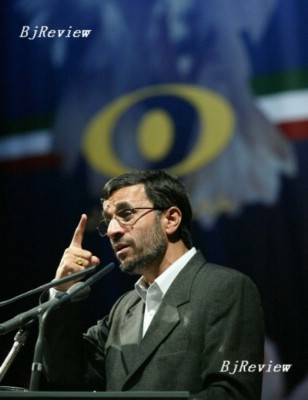
Recent moves have once again highlighted the complexity of the Iranian nuclear issue. In a meeting in London on February 26, diplomats from Britain, France, China, Russia, the United States and Germany agreed to begin work on a new UN Security Council resolution censuring Iran over its nuclear program.
The talks were held five days after a deadline set in a UN Security Council resolution adopted in December expired. The International Atomic Energy Agency (IAEA) confirmed that Iran had ignored the deadline for it to halt its nuclear programs and allow IAEA inspectors to monitor the situation.
The closed one-day meeting featured discussions of further moves to ensure that Iran complies with demands to end its nuclear program. However, no decisions were taken, according to media reports.
"The situation is not clear yet," commented Tian Wenlin, an expert on Middle Eastern affairs at the China Institutes of Contemporary International Relations (CICIR). "The new resolution might use tougher wording and include more explicit and concrete measures, but it is difficult to make any predictions at present."
Having taken note of the latest developments in the Iranian nuclear issue and the escalating tension between Tehran and Washington, Chinese experts showed concern over a possible military showdown while underscoring the viability of other available alternatives.
Worrying trends
IAEA chief Mohamed ElBaradei sent a report on Iran's compliance with demands that it halt sensitive nuclear fuel work to the organization's 35-nation Board of Governors as well as to the UN Security Council on February 22. He said in the report that Iran had refused to suspend its uranium enrichment related activities as demanded by the UN Security Council.
The report further fueled the hotly contested issue, said Tian. However, he said it was not unexpected, given Iran's words and actions over the past months. He noted that Iran made no compromise despite the sanctions imposed on it under the December UN Security Council resolution.
Iran reportedly installed 328 centrifuges in its underground nuclear plant in early February, laying the basis for the full-scale enrichment of uranium.
| 